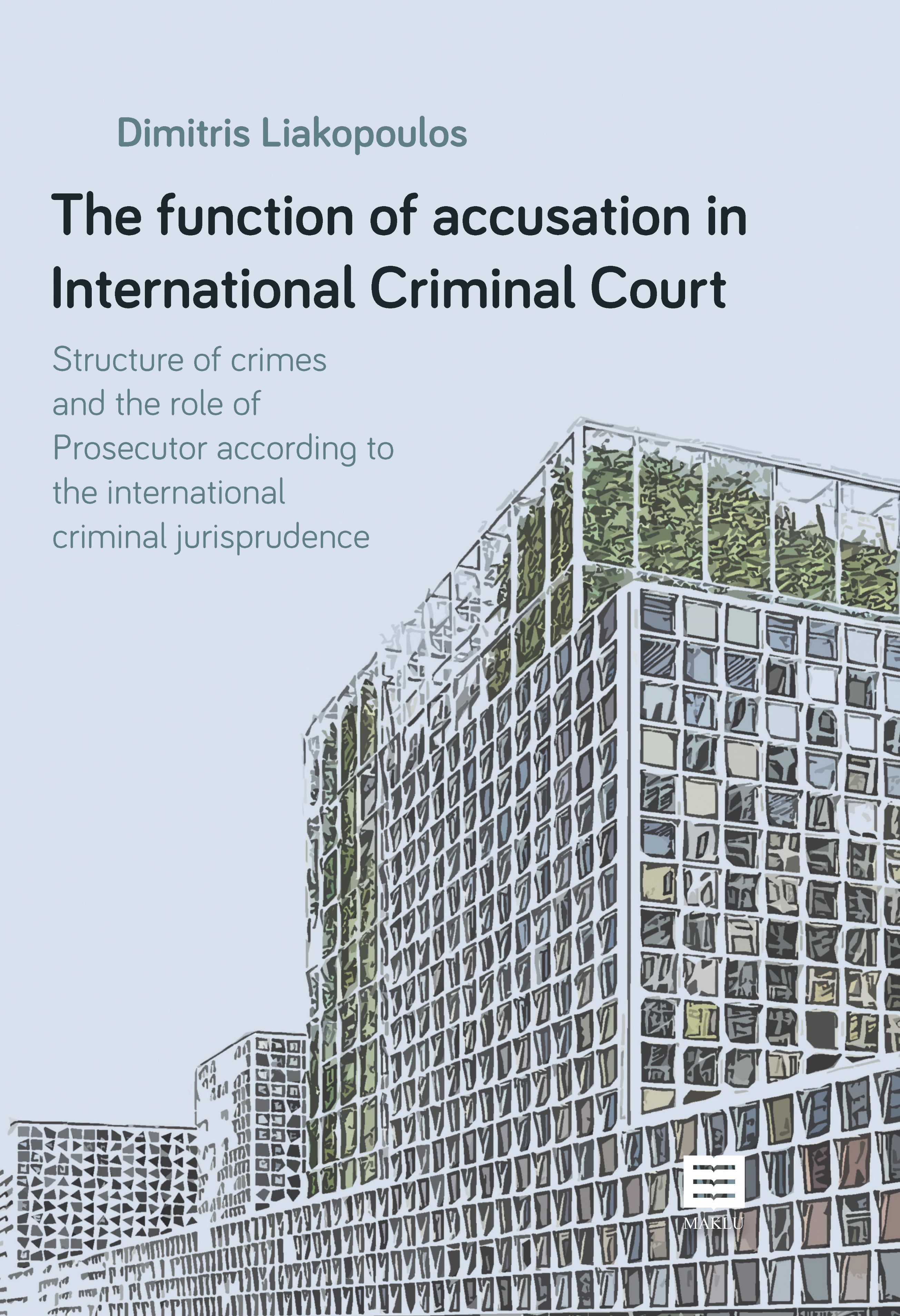Lees
YouBeBusiness
Boekenbon
Impact
Klantenservice
YouBeDo
Wij gebruiken cookies om het bezoek bij YouBeDo.com te verbeteren. Bezoek je onze websites, dan heb je de beste ervaring als je de cookies accepteert.
The function of accusation in International Criminal Court

Samenvatting
The present survey aims to analyze the issue of the indictment function in the
process before the International Criminal Court which integrates a peculiar
justice system, result of the complex interaction between the juridical tradition
of civil law and the juridical tradition of common law. The prosecution function
is entrusted to a Prosecutor who is conceived as a hybrid figure. It is an organ
that not only performs its functions in the context of a system in which the
principle of opportune penal action applies, but which also operates on a level
that can be defined to some extent as political, since he has to move in an international
chessboard and being called to also have diplomatic relations with
states and international institutions. The discussion (Chapter 3 and 4) proposes
a non-new theme, such as that of the structure of the crime in the tripartite
system, and yet almost transfigured by the impact with international criminal
law, which opens up unexpected and unpredictable scenarios, forcing the international
criminal law to renounce and change: on the first , the abandonment
of any systematic ambition is found, on the basis of the finding that the need
for justice, the matrix of international criminal law, can not be enough to establish
a system of crime, because the axiological assumptions are not easily
convertible into incriminating norms. From the sequential treatment of typicality,
anti-juridicality and guilt, in the complexity of the international dimension,
only one certainty emerges. The contextual element, differently depending on
the type of international crime in which it is inserted, is the discrimen regarding
the common crime, and is impregnated with the marked depreciation of the
Makrokriminalität. Chapter 5 is concentrated on some thoughts and perspectives
of universalism and particularism coexist in the same historical moment
and within the same juridical system, so as to underline a sort of internal dialectic
in which universalism and particularism are in a necessarily mobile if
not unstable equilibrium. And it is easy to understand how the positive right
is naturally brought to privilege this second perspective without obviously neglecting
the key offered by history to become aware of the deeper meaning of
these two categories especially according, rectius under international criminal
justice.
Dimitris Liakopoulos is Full Professor of European Union Law at the
Fletcher School-Tufts University (MA in international law and MA of Arts in
Law and diplomacy) and Full Professor of International and European Criminal
and Procedural Law at De Haagse Hogeschool-The Hague. Attorney at Law at
New York and Brussels. ORCID ID: 0000-0002-1048-6468.
Productspecificaties
| Taal | Nederlands |
| Bindwijze | Paperback |
| Oorspronkelijke releasedatum | 04-06-2019 |
| Aantal pagina’s | 334 |
| Hoofdauteur | Dimitris Liakopoulos |
| Hoofd uitgeverij | Maklu, Uitgever |
| Editie | 1 |
| Gewicht | 610 g |
| Product breedte | 161 mm |
| Product hoogte | 21 mm |
| Product lengte | 242 mm |
| EAN | 9789046609729 |
| NUR | 828 - Internationaal (publiek)recht |
Reviews
Er zijn nog geen reviews voor dit boek. Schrijf jij de eerste?
Service & contact
You can make a difference
Be the change
Do it now.
YouBeDo is een online winkel voor consumenten en bedrijven met een bijzondere missie: goed doen met boeken. Tot 12% van elke aankoop doneren we aan een maatschappelijk doel dat jij kiest.

Heb lief, doe goed
Alle prijzen zijn inclusief BTW en andere heffingen en exclusief eventuele verzendkosten en servicekosten.
 Onze impact
Onze impact